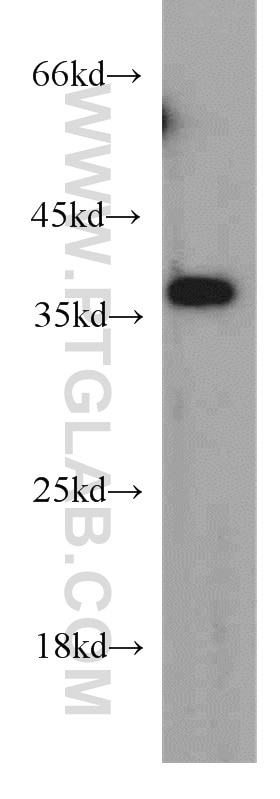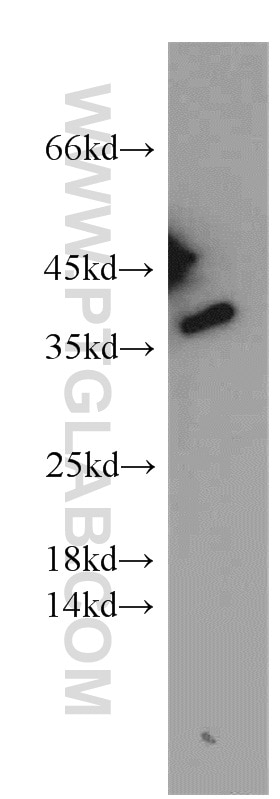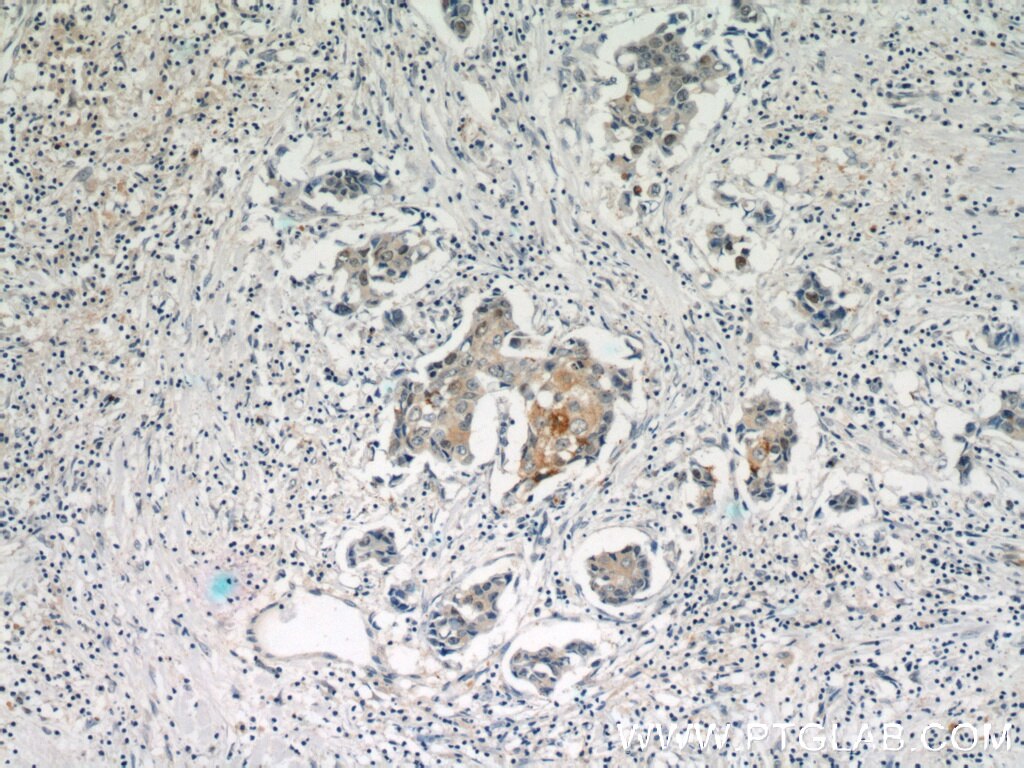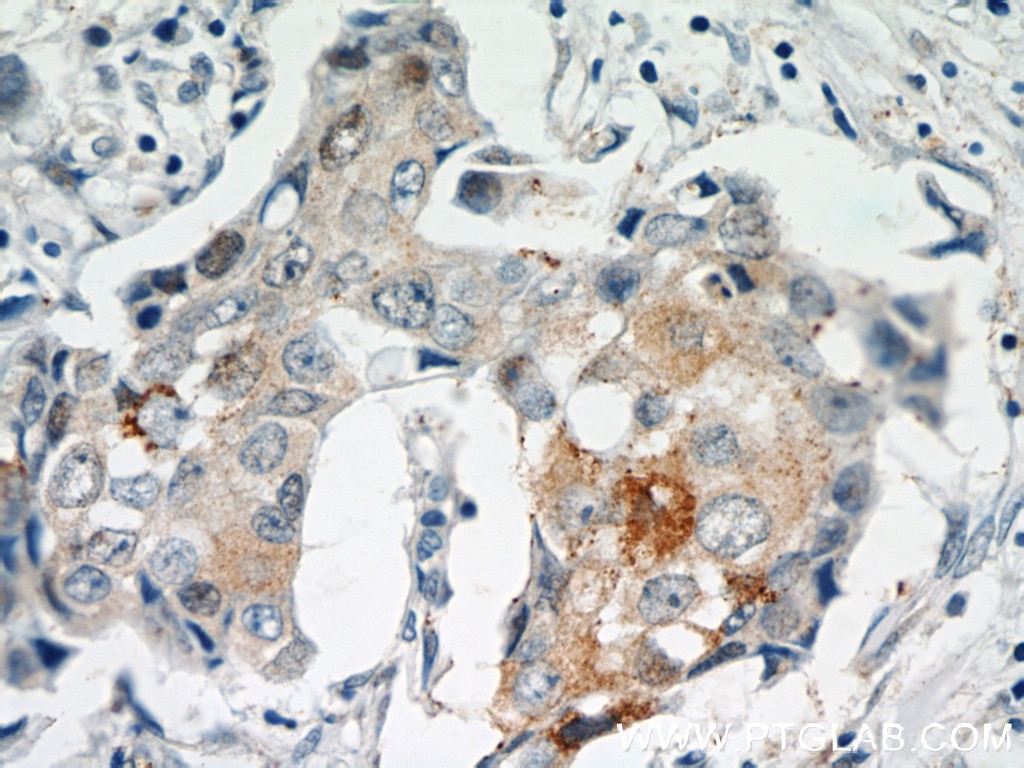Tested Applications
| Positive WB detected in | human placenta tissue, A375 cells |
| Positive IHC detected in | human breast cancer tissue Note: suggested antigen retrieval with TE buffer pH 9.0; (*) Alternatively, antigen retrieval may be performed with citrate buffer pH 6.0 |
Recommended dilution
| Application | Dilution |
|---|---|
| Western Blot (WB) | WB : 1:500-1:1000 |
| Immunohistochemistry (IHC) | IHC : 1:20-1:200 |
| It is recommended that this reagent should be titrated in each testing system to obtain optimal results. | |
| Sample-dependent, Check data in validation data gallery. | |
Product Information
55109-1-AP targets MAGEA4 in WB, IHC, ELISA applications and shows reactivity with human samples.
| Tested Reactivity | human |
| Host / Isotype | Rabbit / IgG |
| Class | Polyclonal |
| Type | Antibody |
| Immunogen | Peptide Predict reactive species |
| Full Name | melanoma antigen family A, 4 |
| Calculated Molecular Weight | 35 kDa |
| Observed Molecular Weight | 35-40 kDa |
| GenBank Accession Number | NM_001011548 |
| Gene Symbol | MAGEA4 |
| Gene ID (NCBI) | 4103 |
| RRID | AB_10858794 |
| Conjugate | Unconjugated |
| Form | Liquid |
| Purification Method | Antigen affinity purification |
| UNIPROT ID | P43358 |
| Storage Buffer | PBS with 0.02% sodium azide and 50% glycerol, pH 7.3. |
| Storage Conditions | Store at -20°C. Stable for one year after shipment. Aliquoting is unnecessary for -20oC storage. 20ul sizes contain 0.1% BSA. |
Background Information
MAGEA4, also named as MAGE4 and CT1.4, is one of the germ cell-specific markers (PMID:16540528). SMAGEA4 is one of the subgroup I MAGEAs members which may play important roles in the immune surveillance of certain tumor types and play important roles during embryogenesis.(PMID:15222021) The antibody is specific to MAGEA4.
Protocols
| Product Specific Protocols | |
|---|---|
| WB protocol for MAGEA4 antibody 55109-1-AP | Download protocol |
| IHC protocol for MAGEA4 antibody 55109-1-AP | Download protocol |
| Standard Protocols | |
|---|---|
| Click here to view our Standard Protocols |









